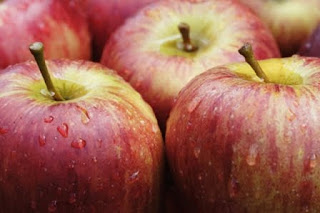He believes in the "continuity of this white gold, but not as in the 80's". The president bets in diversifying the way the product is presented to consumer, so competitiveness is kept. They're looking to encourage the consumption of fresh asparagus; and encourage peeled asparagus in small bags that go straight to the pot; but not forgetting the canned asparagus" even if there's a strong competition in that market", he added.
Barbarín classified the present situation as "transitory", since "we have the tools to make this cultivation profitable for farmers: we just have to keep working".
The Council's president said this in the tasting trip organized by UAGN and Fundagro in the Castillo Plaza, in Pamplona. An action supported by the Government of Navarra. The organization prepared a stand to inform people about the difference between canned asparagus brands coming from the community and the ones imported, mainly from China and Peru. "Only the can with Navarra asparagus has a tag from the Regulation Council, with a code bar to certify that it was cultivated and canned in Navarra, together with the certification stamp. These two stamps are not on the cans of other products", he clarified.











